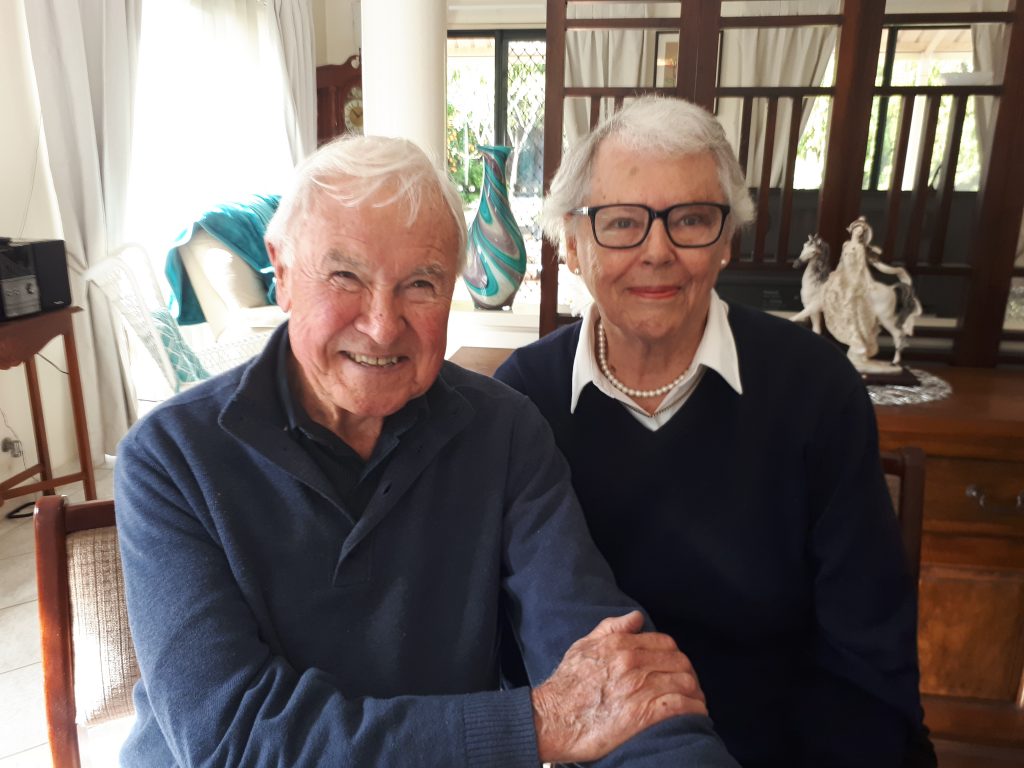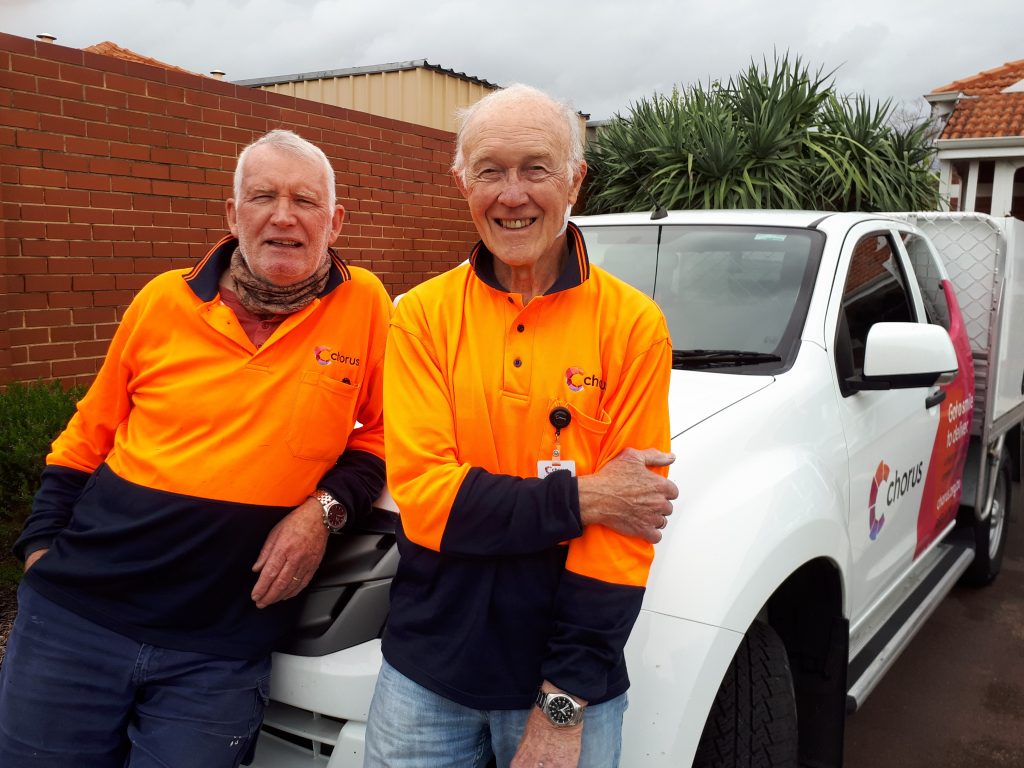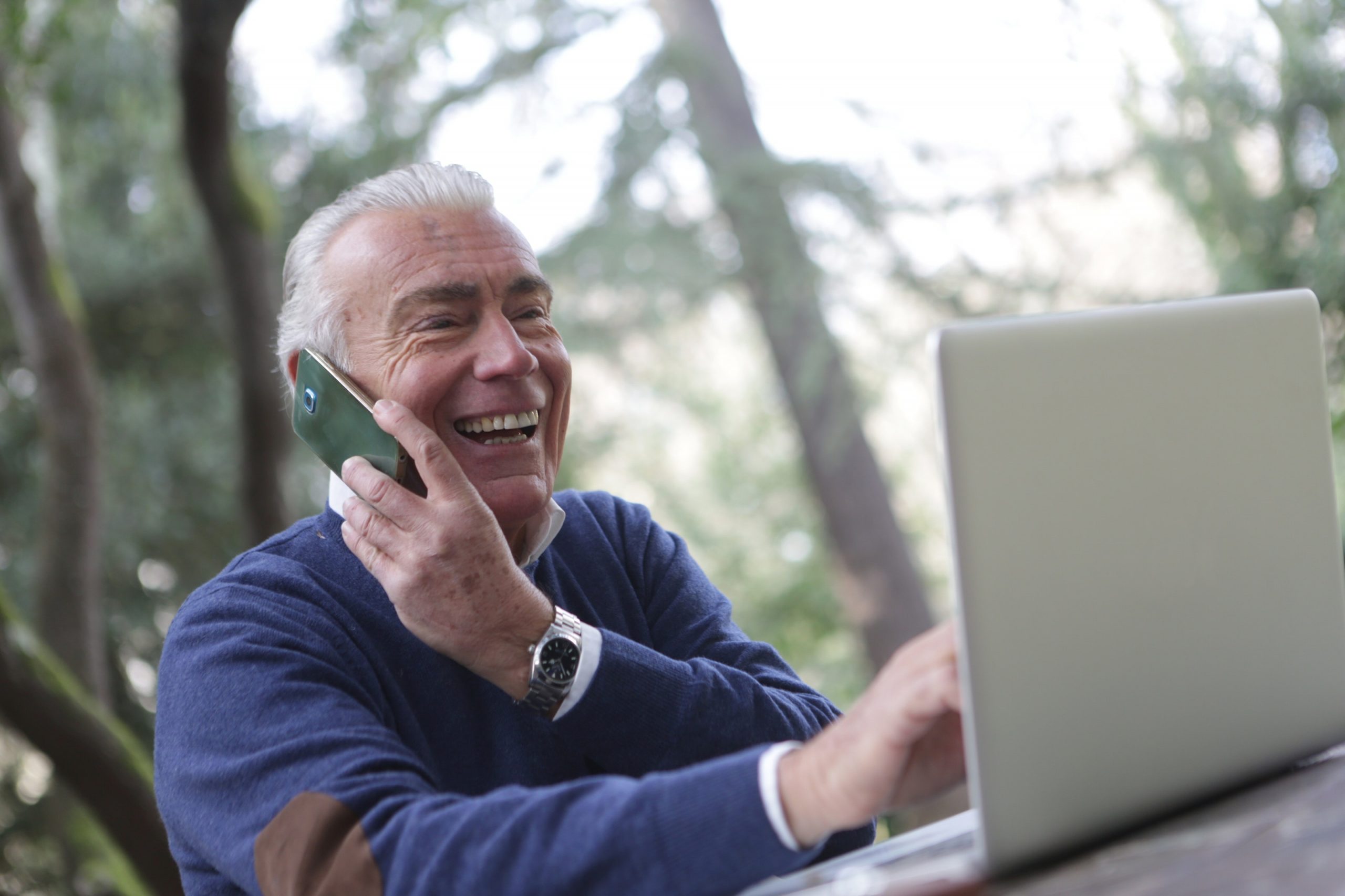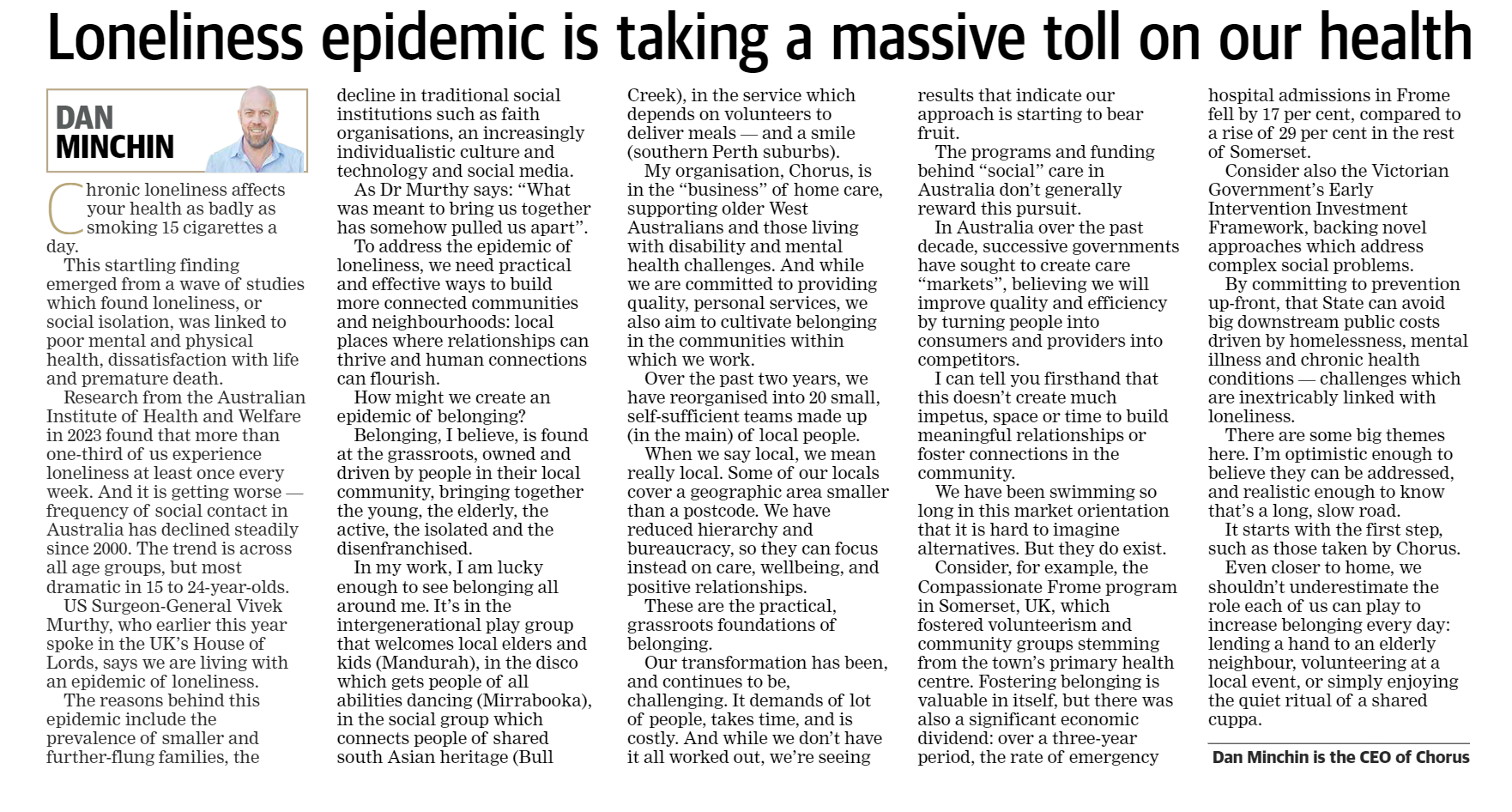What are our perceptions of people as they age? That they’re frail, slow, unwell, lose their memory and can’t learn new things?
Negative language about older people enforces negative stereotypes and these stereotypes can affect how older people behave and think. Stereotypes can impact your physical health, including how you recover from illness and your mortality; they can also affect mental health and cognitive function.
Using words like ‘active’ and ‘happy’ when talking about older people, and seeing older people mirror this behaviour can go a long way in reversing stereotypes.

Kevin and Elizabeth
After all, older adults enjoy a range of activities. They get out and volunteer in the community; they connect on social media; they fall in love. Like Kevin, 86, and Elizabeth, 84, who, after a courtship of roses, coffee dates and playing hard to get, married in January 2019.
Love and roses
“I wanted to be with Elizabeth very, very much,” said Kevin. “I knew that there was a lovely relationship to be had between the two of us, but I didn’t really want to just live together. It needed to be deeper than that for me.”
On their first date Kevin presented Elizabeth with roses from his garden with all the thorns taken off. Elizabeth was impressed. “Well, he’s not bad,” she thought. “Perhaps we could have a coffee.”
Next week at church Kevin ignored Elizabeth. “Yes, I played hard to get,” agreed Kevin. “I just thought she was a bit tough on me and as it happened, Elizabeth contacted me.” And the rest, as they say, is history.
Seeing Elizabeth and Kevin together makes so much sense. They’re happy. They’re content.
But isn’t this sort of behaviour reserved for young people?
“There’s a lovely sense of completeness for me,” said Kevin. “I was floundering a bit after my wife passed away. I really had no aim in life except just getting through the day. And then when I met Elizabeth, things looked as if they could be pretty good for the rest of my time here.”
Ageing and loss can go hand in hand – losing someone we love, like Kevin and Elizabeth, losing our memory or letting go of something we took for granted – can seem inevitable. It doesn’t necessarily mean the end of the road but how hard is it to keep going when things seem like they’re slipping away?
Be active, stay happy

Ian (left) from Chorus North Perth Home Maintenance team with Alan
Alan has been volunteering for 10 years at Chorus. He gave up his driver’s licence recently. But he’s certainly not phased by that.
“Sometimes it’s hard,” Alan said. “But if I can’t drive a car I’ll just go for a walk.”
Two days a week he’s out in the community helping seniors and people living with disability. “The only thing I’m not managing now is a motor car,” he added.
Thanks to Alan’s wife, who still drives, Alan arrives at Chorus with a beaming smile ready for a day out in the ute with the gardening and home maintenance team. He also volunteers in the office on another day. Life continues to be an adventure for Alan.
“In the morning they straight away say: ‘G’day Al, how you going today?’” he said.
Having purpose and connection has played a big role in Alan’s positive outlook on ageing.
“I’m still active in the lawn bowling club and I still go for my walks.”
Positive role models can be helpful for younger people’s perception of ageing and motivational for older adults. But the flip side of the positive role model is that not everyone can or wants to do those things; and if it’s unrealistic it could create anxiety. After all, we’re all different.
Nevertheless Alan, Kevin and Elizabeth have flipped negative stereotypes and rejected a perception that things will get better rather than worse as they age. Which is quite inspiring – no matter your age.
I asked Alan what ageing meant to him.
“If I started thinking about that I wouldn’t be here now with all you guys. I’d just be at home, ageing.”
by Judith Hatton
Listen to Chorus Voices podcast: Love your age
For more information on volunteering with Chorus at any age click here.



